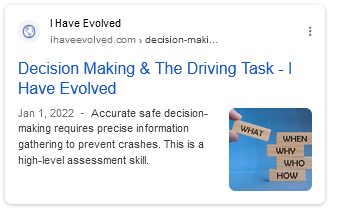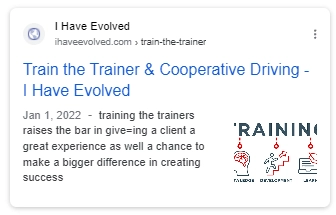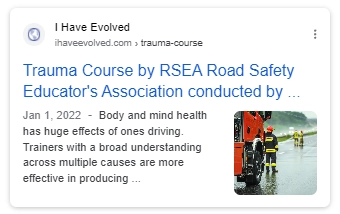- In 1983, cell phones were invented, and by 1990, they were very common.
- In 1999, my morning drives to downtown Toronto from North York involved being on my work cell phone (a very big battery phones) for the entire 30-minute drive. This was the best time to manage purchasing my year’s million-dollar budget and buying much-needed computer and tech equipment for the marketing company I worked for. It was incredibly convenient to travel and work simultaneously. Ten years later this behaviour would become illegal in Canada partially because of the work I have done with Transport Canada.
- In 1998, a year before this top tech position, I worked as a senior assessor under contract with Transport Canada’s Ergonomics Division. We conducted applied research studying the risks of cell phone usage while driving. Do you think I would know better about cell phones and driving on my new job? I do know it very well and in more detail than most.



So let me tell you a little about the applied research cell-phone studies I was involved with…
Experienced, 10 years+ accident-free drivers would arrive at the parking lot and be paid $40 to drive with me for an hour. The back seat was equipped with several video cameras and two PhD students. Each driver did three tests: one driving normally, one while holding a conversation with the PhD students, and one while using a hands-free cell phone to talk to another person on the other end somewhere. All of this occurred while they were driving the car.
We started by reading a story to the driver, asking them to carefully remember the details. During the drive, researchers would ask them questions about the story, rewarding them $50 for each correct answer, allowing them to earn several hundred.
My job, in the passenger seat, was to ensure safety without interfering with the driver. The car had dual brake controls, but no steering wheel nor a second gas pedal. Additionally, my hearing was blocked to ensure both unbiased observations of the driver and no knowledge of the conversations in the car. Additionally, I learned to use a cutting-edge assessment, relying on my brain and skills, to write down six precise stats every 15 seconds along a predefined carefully chosen route. These measurements were used to determine if the driver’s risk increased or decreased under different conditions. These factors were based on the most current crash research identifying the top driver behaviours for avoiding trouble.
I developed many of my skills starting at age 6, driving on my dad’s lap, through my teenage years driving trucks, snowmobiles, and dirt bikes. This experience, combined with nearly two decades of new driver training and corporate road safety work, led me to work on these groundbreaking cell phone studies with Sue MacNeil, a leading mind in road safety, said to be the mother of graduated licensing. Additionally, the training to do this applied research was intense, but so very interesting.
As everyone is well aware today, these studies contributed to worldwide bans on cell phone usage; 1999 New York, 2000 UK, 2001 New South Wales, 2003 Germany, 2004 Japan, and 2008 Canada.
What Did I Learn Throughout All This Experience?
- Safe Driving Demands Continuous, 100% Vigilance and Awareness at all Times
- I Understand the Key Skills needed for Minimizing Risk, Grounded in Crash Research.
- Many drivers struggle to manage the added Mental Load from distractions like cell phones, or conversations while driving. Some can handle it but not everyone.
- I often had to take control of the car from my passengers seat in very dangerous situation, without letting the driver know. This was to ensure that the research could capture the driver’s distracted and wreckless acts as they attempted to earn money during the study.










